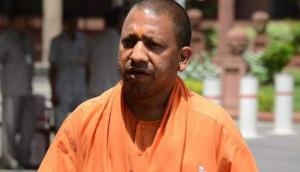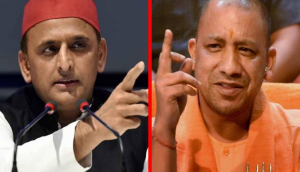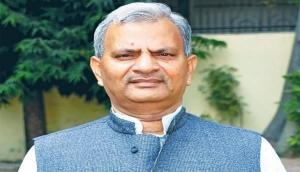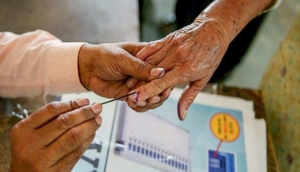
Who is forming the next government in Uttar Pradesh is a question which pops up at every gathering and chai and paan shops. The replies, based on conjectures about caste and communal factors, conversation with some people at the ground and one’s political affiliation, vary from one extreme to another.
At the end of four phases in which voters sealed the fate of candidates in 262 constituencies – nearly two-thirds of the state – all the parties are screaming victory and each of them is confident of forming the next government.
Bharatiya Janata Party claimed to be winning 150 of the 262 seats, the Samajwadi Party-Congress combine was certain of bagging 55 per cent to 60 per cent seats which roughly works out to 157 seats. The Bahujan Samaj Party was an exception as it has only said that it will again come to power but has not predicted the number of seats it hoped to win.
Never mind the ban on currency notes and the resultant long queues outside banks and ATMs to withdraw money. Never mind the ugly scenes witnessed in the Samajwadi Party first family’s infighting and the Congress’s marginal presence in state politics or the law and order issue. None of the three major players wants to climb down from its ambitious numbers they are confident of winning.
First the BJP, whose national president Amit Shah claims his is winning 265 or more seats overall. The party’s general secretary Vijay Bahadur Pathak said without even moment’s pause, “We have a clear edge and are going to form the government as people have voted for change.”
Note ban, he said, was not an issue.
Another party functionary claimed that the BJP was winning 150 seats in the first four phases and claimed he “can give constituency wise break up”.
To meet Shah’s target of 265 plus seats the BJP must now win at least 115 out of the remaining 141 constituencies, which does not seem probable.
Was Jat alienation an issue? The functionary claimed that whatever the differences they were resolved before the voting day. “Our OBC vote is intact and Dalits are not angry and that is what gives us the confidence,” he said.
If the party was gung-ho about its prospects, why did it have to infuse communalism in campaigning? The functionary said “it was not the BJP which communalised the atmosphere by giving preferential treatment to a particular community”.
So much so, he said, that barring Jaswantnagar the BJP will win all other seats in Etawah. Shivpal Singh Yadav, who fears sabotage from Akhilesh Yadav-Ram Gopal Yadav camp, is a candidate from Jaswantnagar.
The SP, on the other hand, is confident of winning a mind boggling 300 seats in alliance with the Congress, the family infighting notwithstanding. Without the alliance, Akhilesh has repeatedly said, his party would have won 250 or more seats.
The party’s spokesperson, Dr Madhu Gupta, said, “We are hopeful of winning 300 plus seats but cannot give the number for the first four phases.” Demonetisation and development were the two factors which are attracting the voters towards the SP, she said.
Congress spokesman Surendra Rajput described the electorate as being anti and pro Prime Minister Narendra Modi. Anointed by Rahul Gandhi, Akhilesh is the leader of the anti-Modi camp.
“The youthfulness of the two leaders has broken caste barriers and appeals to the 40-50 lakh young voters who identify themselves more with Akhilesh and Rahul than Modi,” said Rajput. The coalition, according to him, should win 55-60 per cent seats in the first four phases.
For both the BJP and the coalition partners, the BSP was nowhere in contention. In Rajput’s view the BSP could not project itself as being anti-Modi, therefore, it has been relegated to the third spot.
Professor SK Dwivedi, former head of the political science department at Lucknow University, who is close to the RSS, saw the BJP in a fight with the BSP as “Muslims do not find SP-Congress alliance to be stable and were, therefore, more inclined towards Mayawati”. But he asserted, the BJP was without doubt the number one party after these four phases.
On polarisation, Prof Dwivedi said that all the parties were focusing on divisive politics but use of Holi, Diwali and Ramzan by Modi was done because the common man understands these terms more easily.


_231291_300x172.jpg)




![BJP's Kapil Mishra recreates Shankar Mahadevan’s ‘Breathless’ song to highlight Delhi pollution [WATCH] BJP's Kapil Mishra recreates Shankar Mahadevan’s ‘Breathless’ song to highlight Delhi pollution [WATCH]](https://images.catchnews.com/upload/2022/11/03/kapil-mishra_240884_300x172.png)

![Anupam Kher shares pictures of his toned body on 67th birthday [MUST SEE] Anupam Kher shares pictures of his toned body on 67th birthday [MUST SEE]](https://images.catchnews.com/upload/2022/03/07/Anupam_kher_231145_300x172.jpg)






